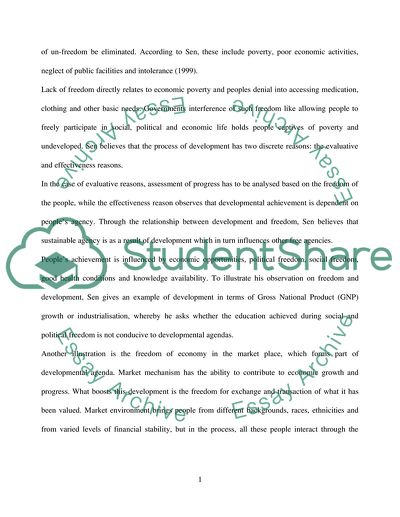Cite this document
(“Account for Amartya Sen's Approach to Development as Freedom Essay”, n.d.)
Account for Amartya Sen's Approach to Development as Freedom Essay. Retrieved from https://studentshare.org/macro-microeconomics/1672760-account-for-amartya-sens-approach-to-development-as-freedom
Account for Amartya Sen's Approach to Development as Freedom Essay. Retrieved from https://studentshare.org/macro-microeconomics/1672760-account-for-amartya-sens-approach-to-development-as-freedom
(Account for Amartya Sen'S Approach to Development As Freedom Essay)
Account for Amartya Sen'S Approach to Development As Freedom Essay. https://studentshare.org/macro-microeconomics/1672760-account-for-amartya-sens-approach-to-development-as-freedom.
Account for Amartya Sen'S Approach to Development As Freedom Essay. https://studentshare.org/macro-microeconomics/1672760-account-for-amartya-sens-approach-to-development-as-freedom.
“Account for Amartya Sen'S Approach to Development As Freedom Essay”, n.d. https://studentshare.org/macro-microeconomics/1672760-account-for-amartya-sens-approach-to-development-as-freedom.


